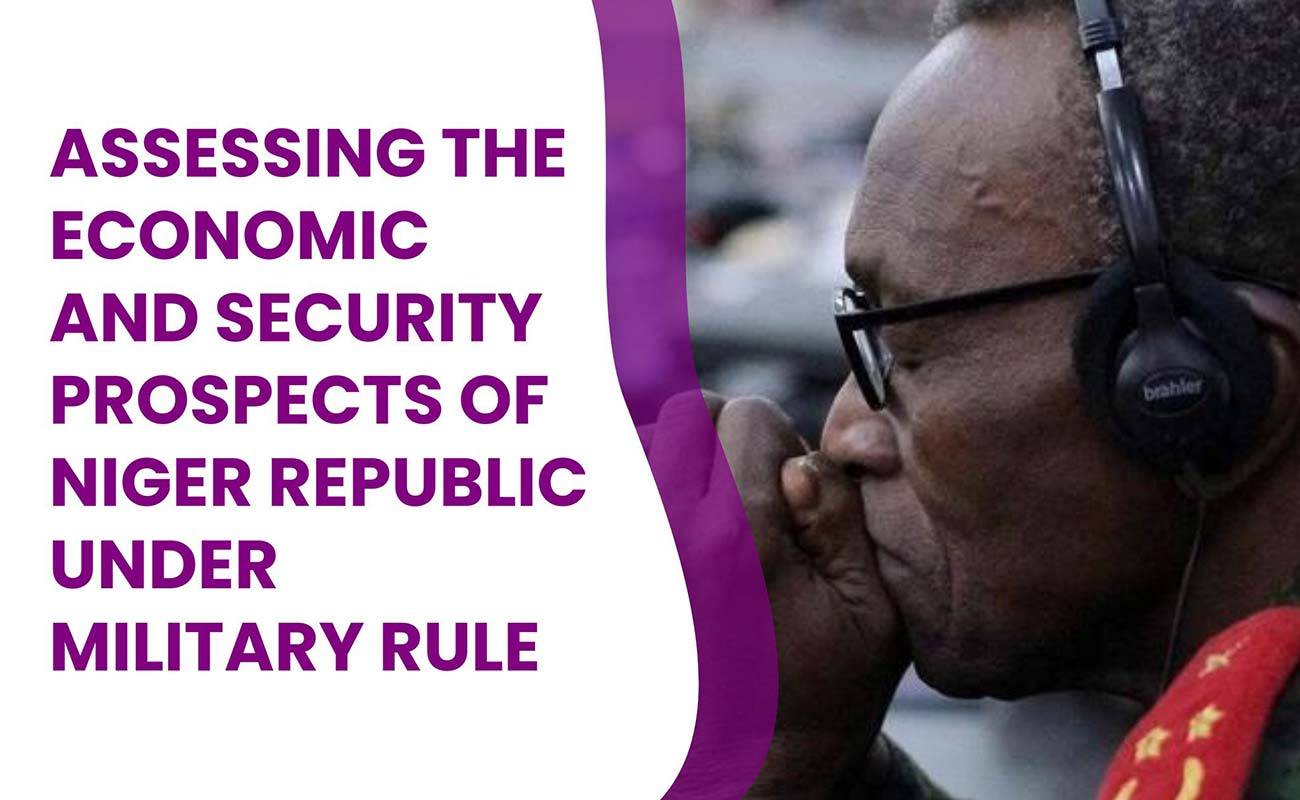
By David Odunusi
Since July 2023, Niger Republic has been under military rule. The military seized power from the democratically elected government of President Bazoum, who had come into power less than two years in a relatively free and fair election. The military’s justification for seizing power in Niger Republic revolves around perceived governance failures, corruption, and instability in the civilian government. After seizing power, the military consolidated its power through various means, including the imposition of martial laws, the suspension of several constitutional rights, and the dissolution of civilian institutions. These actions have brought several consequences such as investor uncertainty, capital flight and budget cuts. For example, Niger reduced its projected spending for 2023 by 40 percent, the initial estimate of $5.3 billion (3.29 trillion CFA francs) has been revised down to $3 billion (1.98 trillion CFA francs).
Additionally, the military government of Niger have faced economic sanctions from its regional and international partners such as the Economic Community of West African States (ECOWAS), and the European Union (EU). In this article, I discuss Niger Republic’s transition into military rule, examine the situation before and after the coup, and analyze the economic and security implications. Undoubtedly, Niger’s socioeconomic landscape under military governance remains uncertain. Could this be the steppingstone towards Niger’s revolutionary mission?
Niger Republic, like many African nations, has experienced its fair share of political upheavals, with military coups shaping its governance structure at various points in history. The transition into military rule often brings about significant shifts in political dynamics, economic policies, and security strategies, setting the stage for both challenges and opportunities in the development trajectory of the nation.
In terms of the economy, in early 2023, Niger was already grappling with deep-rooted economic challenges, including high unemployment rates and widespread poverty. Despite its abundant natural resources, the nation struggled to translate these assets into sustainable economic growth. However, on the 26th of July 2023, the political landscape underwent a seismic shift as the military seized power, promising to address economic woes through sweeping reforms. This resulted in an even bigger downplay on the economy, largely driven by regional and global sanctions such as Nigeria’s termination of electrical supply to the country, and the EU’s suspension of aid worth 503 million euro to improve governance, education and sustainable growth, amongst others. The amount of budget support provided to Niger is now estimated at 254 million dollars which is significantly lower to the 1.166 billion dollars forecast before the coup. In terms of funding for development projects, only 82 million dollars (0.55% of GDP) have been disbursed in 2023, compared with the significant flows expected of 625 million dollars (3.6% of GDP), according to the study, which indicates that this suspension There is no doubt that the suspension of aid will weigh heavily on the country’s ability to implement projects and execute the budget. This has led to economic regression and instability. Will Niger be able to overcome?
On the other hand, security has always been a pressing issue in Niger, exacerbated by its proximity to conflict-prone regions and the presence of armed groups within its borders. The coup ushered in a new era of security governance, marked by heightened military presence and crackdowns on dissent. However, concerns lingered about potential human rights abuses and the erosion of democratic principles. Some of the security crisis includes attacks by Islamist Armed Groups such as the July 14th (2023) event where suspected members of an Islamist group killed four civilians and injured seven others in an attack in Tillabéri region. Also, on the 19th and 20th of March 2024, 23 of Nigerien soldiers were killed in a “terrorist” ambush near the borders with Burkina Faso and Mali in a western region prone to jihadist attacks. Niger has been characterized by a series of post-Coup violence due to political tension, post-coup attack on freedom of expression, amongst others.
Despite the twists and turns of military rule, there’s a sense of possibility in the air. Post-coup economic policies, including the newly established Anti-Corruption Task Force and social welfare programs such as the National Cash Transfer Program, have been implemented. Additionally, economic reforms have been initiated, encompassing measures to streamline business regulations, attract foreign investment through tax and investment incentives, and promote entrepreneurship and small business development. These offers hope to revitalize key sectors and stimulate economic growth. According to a March 1, 2024, report by the African Development Bank (AfDB), the country’s GDP could jump by 11.2% in 2024, following growth of 4.3% in 2023. However, the path forward is fraught with challenges, including navigating geopolitical pressures and ensuring inclusive development that benefits all Nigeriens. Currently, the nation stands at a crossroads, with the potential for transformative change balanced against the risks of instability and authoritarianism. What effective economic or political policies could turn this around to Niger’s favor? Niger Republic under military rule faces complex challenges and uncertain prospects. While the military cites governance failures and security threats as reasons for seizing power, questions arise about democratic erosion and civil liberties. Economic sanctions compound these challenges, affecting stability and development efforts. Speculation surrounds the military’s ability to address root causes effectively, balance security with governance, and foster inclusive growth. International cooperation will be crucial, but uncertainties persist as Niger navigates the complexities of military rule in its democracy.
